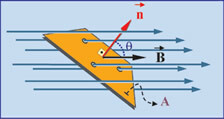Note the following words:
(1) sabiThe
(2) sabia
(3) knowá
Note that, despite being similar in writing, each has a stronger syllable different, isn't it? In (1), the syllable that has the greatest stress is “bi”; in (2), it is “sa”; and, in (3), it is “á”. This is because the tonic accent position varies and causes a variation not only phonological, but especially semantics, that is, their different positions give new meanings to the trio of words above.
Another questioning is possible when we observe these words: why did some words receive an acute accent and others not?
To answer this question, we must distinguish between tonic and graphic accents.
Tonic accent: is the one that indicates the highest degree of sound force of one of the syllables. This accent is directly related to the phonetic aspect of the word.
Examples:
meniat the
directtor
funil
Herb teabadlook
Note that, in all the examples above, the words have a stronger syllable, however, only in the last case, there was the presence of an acute accent.
graphic accent: is the graphic mark (acute accent, grave accent and circumflex accent) used in order to register the open or closed timbre of certain vowels, the combination of preposition and article/demonstrative pronoun and/or the position of the tonic accent in some words. Thus, because it is related to the orthographic aspect, the use of this accent is conditioned to the current orthographic rules.
Example:
fisic
àthat
threemule
Finally, returning to the question about the use or not of the acute accent in the words that we initially observed in this text, we conclude that:
In (1), there is no graphic accent, as it is a paroxytone ending in “a”;
In (2), the accent is used because it is a paroxytone ending in diphthong growing;
In (3), the graphic accent is indicated because it is a word oxytone ending in “a”.
By Mariana Rigonatto
Graduated in Letters
Source: Brazil School - https://brasilescola.uol.com.br/gramatica/acento-tonico-x-acento-grafico.htm

